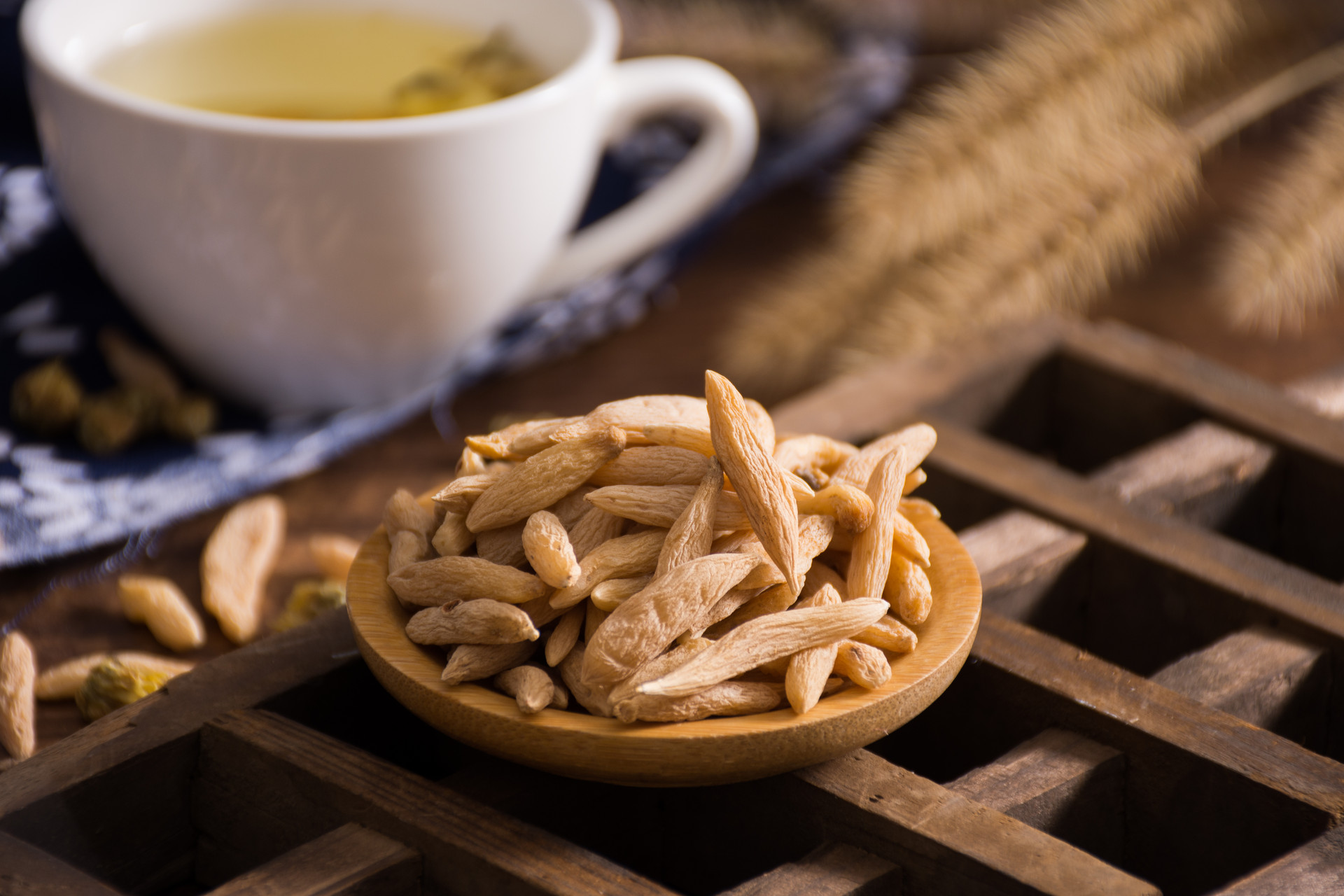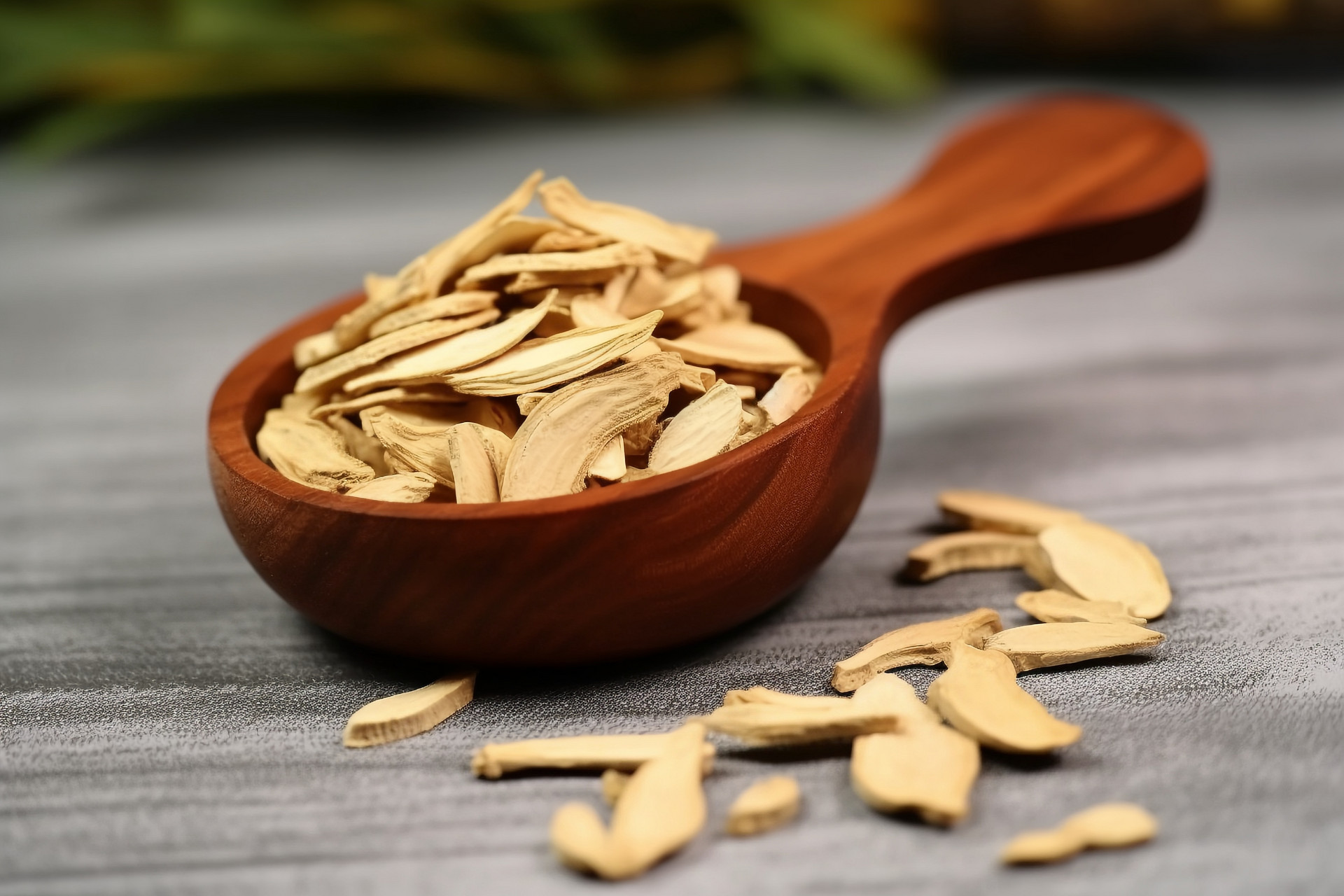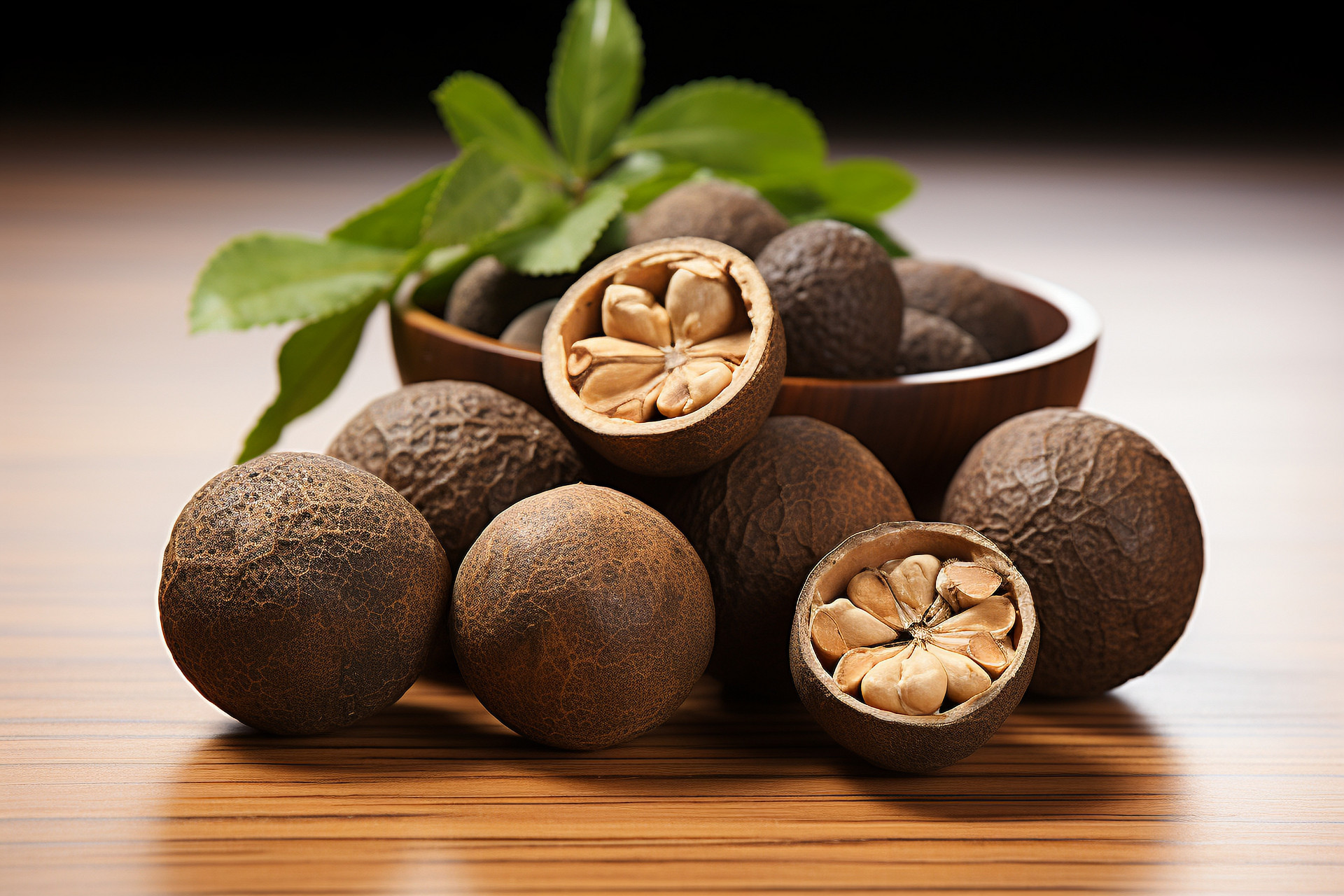Ginseng and Astragalus are commonly used Qi-tonifying herbs in clinical practice, which is well known. Since they are both Qi-tonifying herbs, why do we need to differentiate their use? This is because besides tonifying Qi, Ginseng and Astragalus also have different additional effects. If they are not used differently, their effects cannot be fully exerted. Moreover, improper use can also increase the patient's suffering.
Ginseng has a sweet and slightly bitter taste, and a slightly warm nature; Astragalus has a sweet taste and a warm nature. Although both have the function of tonifying Qi, the former has a stronger effect. In addition, Ginseng also has the effects of relieving thirst, generating body fluids, and calming the mind, which Astragalus does not possess. The Qi-tonifying effect of Astragalus is far less than that of Ginseng. Astragalus primarily tonifies the surface, with effects such as promoting Yang, stabilizing the exterior, promoting urination, and reducing swelling, which Ginseng does not have. Because of the different effects they possess, they must be used differently.
Application of Ginseng
Tonifying the Yuan Qi: It is often used in clinical practice to treat serious or chronic diseases, or cases where blood loss leads to Qi deficiency, resulting in shortness of breath, fatigue, cold limbs, and weak pulse. Ginseng can be used alone or in combination with Aconite or Astragalus.
Tonifying the Lungs and Kidneys, and Relieving Asthma: For example, Ginseng in combination with Walnut meat or Ginseng in combination with Gecko can be used to treat Qi deficiency of the lungs and kidneys, manifested as wheezing, weak voice, and weak pulse.
Strengthening the Spleen and Stopping Diarrhea: For example, Ginseng in combination with White Atractylodes, Poria, Amomum, Dioscorea, and Coix seed can be used to treat mental fatigue caused by Qi deficiency of the spleen and stomach.
Generating Body Fluids and Relieving Thirst: In clinical practice, it can be used to treat the following conditions:
① In hot diseases where body fluids are damaged, leading to heat and thirst, sweating, a big pulse, and deficiency, Ginseng in combination with Gypsum can be used with good effect.
② In hot or heatstroke cases where the Qi and body fluids are damaged, resulting in excessive sweating, thirst, fatigue, or deficiency of body fluids causing restlessness, insomnia, shortness of breath, spontaneous sweating, palpitations, and weak pulse, Ginseng in combination with Ophiopogon, Schisandra, etc., can achieve remarkable results.
③ Ginseng can calm the mind and soothe the nerves, so it can also be used to treat symptoms such as palpitations, confusion, irritability, and restless sleep caused by the disharmony between the heart and kidneys. It is often used in combination with Sour Jujube Seed, Polygala, and Polygala.
④ In cases of heart and spleen deficiency resulting in mental fatigue, forgetfulness, insomnia with frequent dreams, palpitations, shortness of breath, decreased appetite, and loose stools, Ginseng in combination with Astragalus, Longan fruit, Sour Jujube Seed, Atractylodes, and Dong Quai can be used with good effect.
Application of Astragalus
Tonifying Qi and Promoting Yang: Used for prolapse of the rectum, uterus, or excessive uterine bleeding, dizziness, and fatigue caused by Qi deficiency. It is often used in combination with Rhizoma Chuanxiong, Bupleurum, etc.
Consolidating the Exterior and Arresting Sweating: It is commonly used for spontaneous sweating caused by deficiency of the surface. For example, when the exterior Qi is not consolidated and wind-cold is contracted, resulting in sweating, Astragalus in combination with Atractylodes and Saposhnikovia divaricata can be used, and long-term use has good effects.
Promoting the Discharge of Pus from Ulcers: It is used for ulcers that do not heal for a long time and become indented, with the function of promoting ulceration and shrinking abscesses. After the ulcer is ruptured, it can be used to promote granulation and healing, often in combination with Honeysuckle, Platycodon, and Sophora.
Diuresis and Reducing Swelling: Used for edema caused by deficiency of Yang Qi, often in combination with Poria, Alisma, Atractylodes, etc.
In summary, Ginseng and Astragalus have similar but different effects. They should be used clinically according to the syndrome differentiation, and one should not simply use them together based on the presence of Qi deficiency, in order to avoid the lesson of "one medicine, every desire to bite the umbilical cord".











